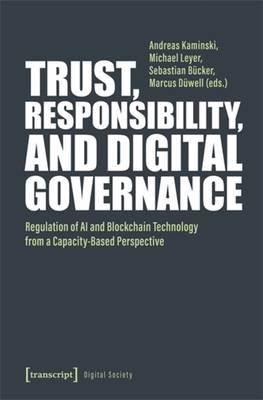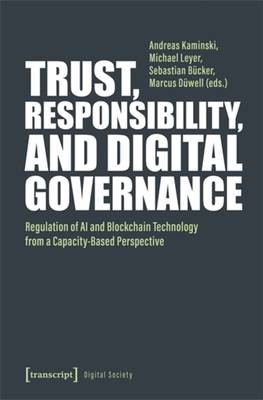
- Afhalen na 1 uur in een winkel met voorraad
- Gratis thuislevering in België vanaf € 30
- Ruim aanbod met 7 miljoen producten
- Afhalen na 1 uur in een winkel met voorraad
- Gratis thuislevering in België vanaf € 30
- Ruim aanbod met 7 miljoen producten
Zoeken
Trust, Responsibility, and Digital Governance
Regulation of AI and Blockchain Technology from a Capacity-Based Perspective
€ 88,45
+ 176 punten
Omschrijving
Numerous ethical guidelines and regulatory frameworks have been developed to assess and shape digital systems. However, these efforts often rest on the dubious assumption that individuals and organisations possess the necessary capacities to assess such systems in terms of justice, reliability, and other normative standards - especially given the growing complexity and corresponding opacity of many digital models. This issue is therefore of central importance to both legal and ethical debates surrounding AI and digital systems in general. The contributors to this volume propose a new approach to digital governance to enhance the capacity to evaluate and shape digital systems.
Specificaties
Betrokkenen
- Uitgeverij:
Inhoud
- Aantal bladzijden:
- 280
- Taal:
- Engels
- Reeks:
- Reeksnummer:
- nr. 79
Eigenschappen
- Productcode (EAN):
- 9783837678024
- Verschijningsdatum:
- 27/01/2026
- Uitvoering:
- Paperback
- Formaat:
- Trade paperback (VS)
- Afmetingen:
- 148 mm x 225 mm
- Gewicht:
- 300 g

Alleen bij Standaard Boekhandel
+ 176 punten op je klantenkaart van Standaard Boekhandel
Beoordelingen
We publiceren alleen reviews die voldoen aan de voorwaarden voor reviews. Bekijk onze voorwaarden voor reviews.







